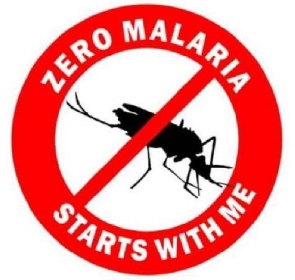The Ghana Health Service (GHS) has called on journalists to support the Service to deliver integrated health package through accurate messages towards malaria eradication in the country.
“Also, we need your support to set malaria as a national development agenda. This will drive advocacy for political will, increase partnership, availability and accessibility of effective tool for prevention, diagnoses and treatment of malaria in all the vulnerable populations.”
Dr Anthony Adofo Ofosu, the Deputy Director General, GHS, said this at the launch of “Zero malaria starts with me” campaign in Accra.
The launch coincided with a sensitisation programme by the African Media and Malaria Research Network (AMMRN), the National Malaria Control Programme and the Speak Up African Organisation.
The Deputy Director General said "It is the belief of the GHS that with effective engagement…we will be able to eradicate malaria from the country in the near future.”
Dr Ofosu noted that malaria remained a major public health concern in the country, adding “It is accounting for majority of the OPD cases that we see in our various facilities. However through intensifying and scaling up of malaria control strategies, a lot of success has been achieved over the years.”
According to him, malaria related deaths across all age groups had reduced drastically by 88 percent “That is from 2, 799 in 2012 to 33 by the end of 2019. Under five malaria case fatality rate had also reduced significantly.
That is if you take 100 children admitted in the hospital, we have less than one per cent fatality,” he explained.
The Deputy Director General said testing of malaria suspected cases to confirm the existence of parasites before treatment had increased from 38 percent in 2012 to 93.7 percent in 2019.
“These reductions have been achieved through strong collaborations between public, private and Civil Society Organisations, the media and particularly the unwavering dedication of our health workers.”
Dr Ofosu said in spite of the gains, the country continued to record high numbers of malaria cases, and disclosed that over six million malaria cases were confirmed in OPDs of health care facilities last year, and reiterated that malaria continued to be the number one cause of hospital attendance.
He expressed concerns that about 50 per cent of the population did not sleep under treated mosquito nets though about 20 per cent of the population had access to the nets and said the involvement of the media was critical to intensify the need for the use of the treated mosquito nets.
Mrs Linda Asante-Agyei, the Vice President of the Ghana Journalists Association (GJA) stressed on the need for Journalists to change the narrative, and extensively concentrate news coverage on malaria dissemination in communities across the country.
“As media people, we set the agenda. Let us use this opportunity to set the agenda, hold politicians, people in high places, and those who matter accountable, let us change the narrative, and we can do it,” she said.
She said GJA was committed to complementing the efforts of GHS in its quest to eradicate malaria in the country.
Health News of Saturday, 26 September 2020
Source: GNA

















